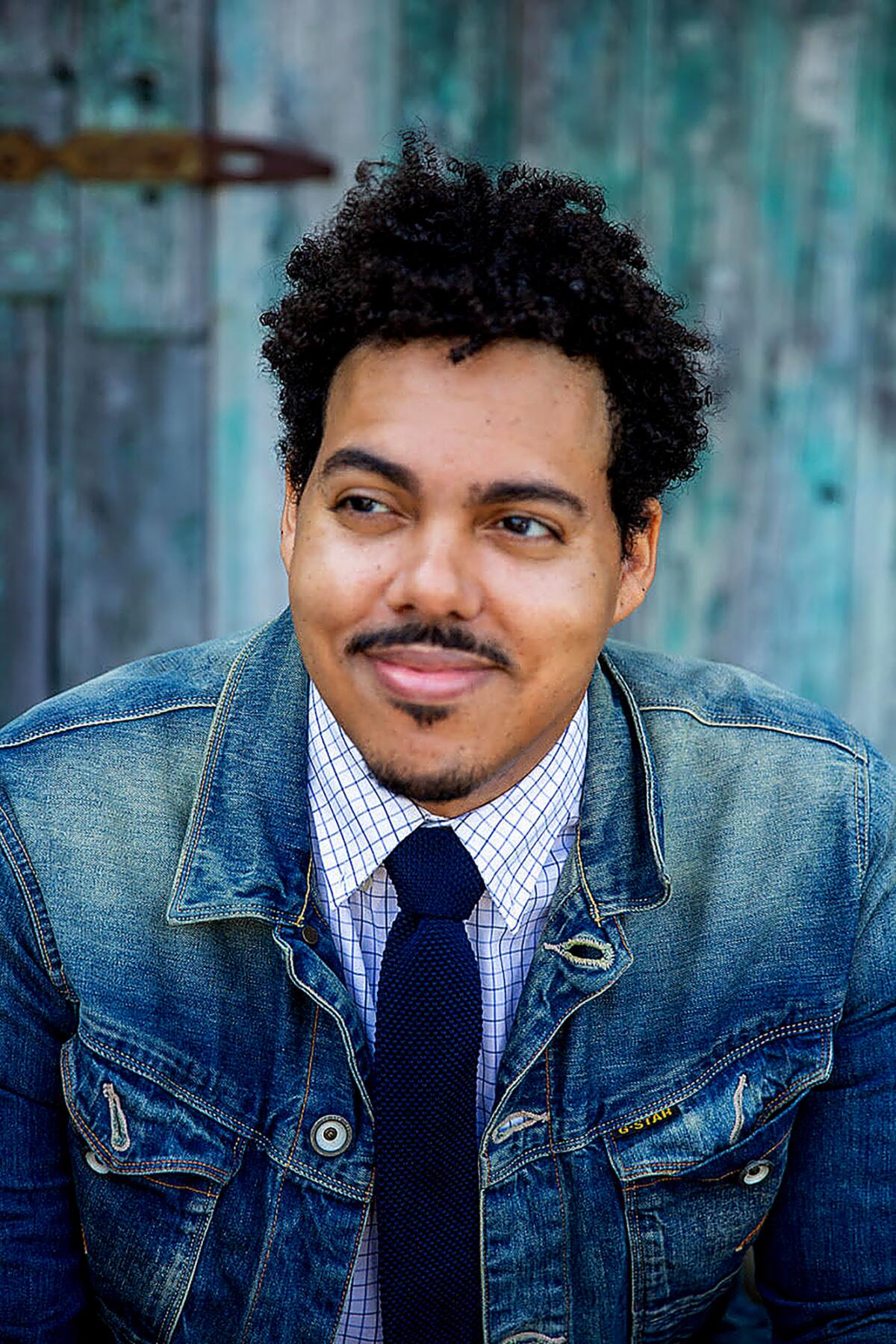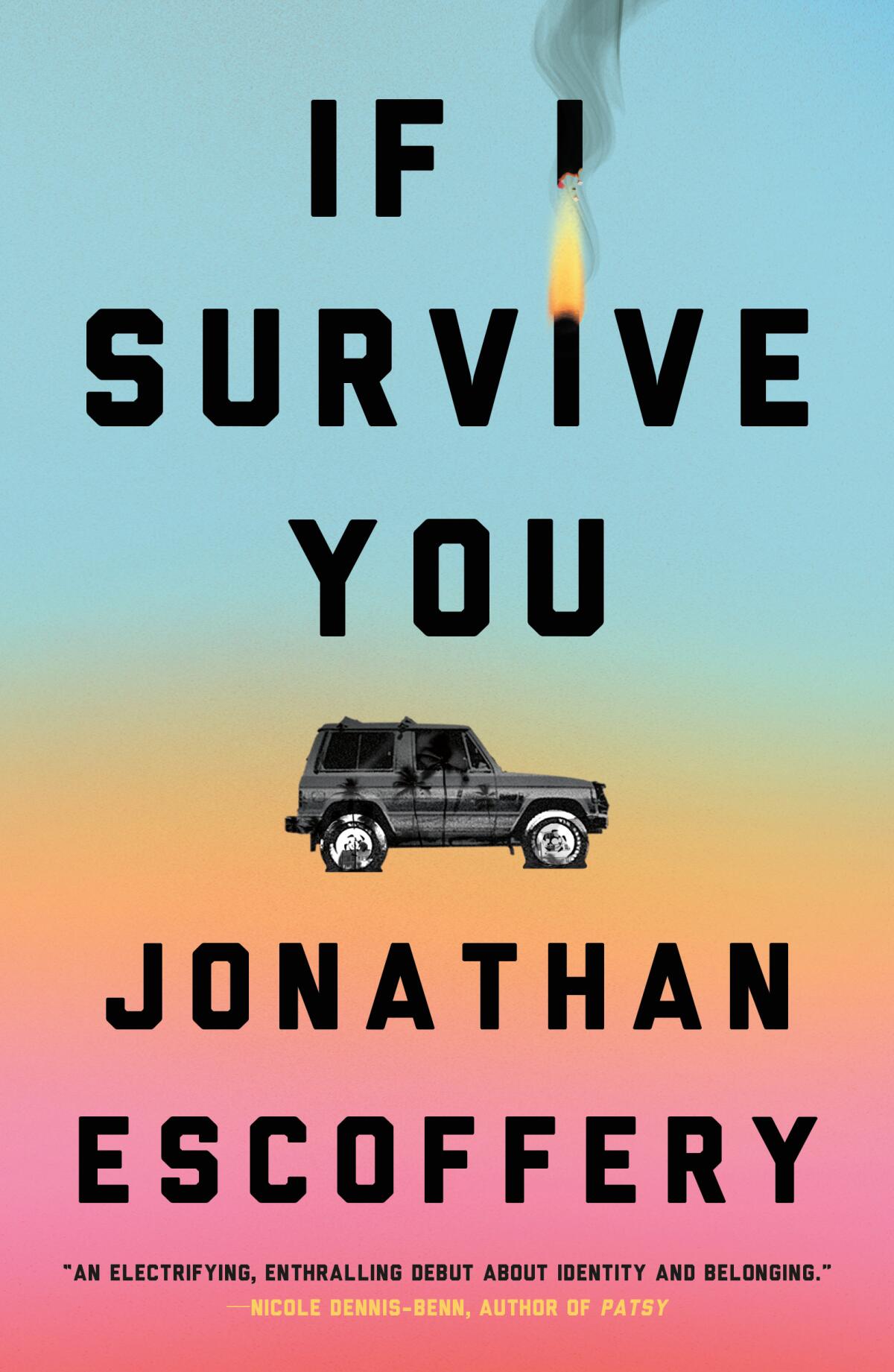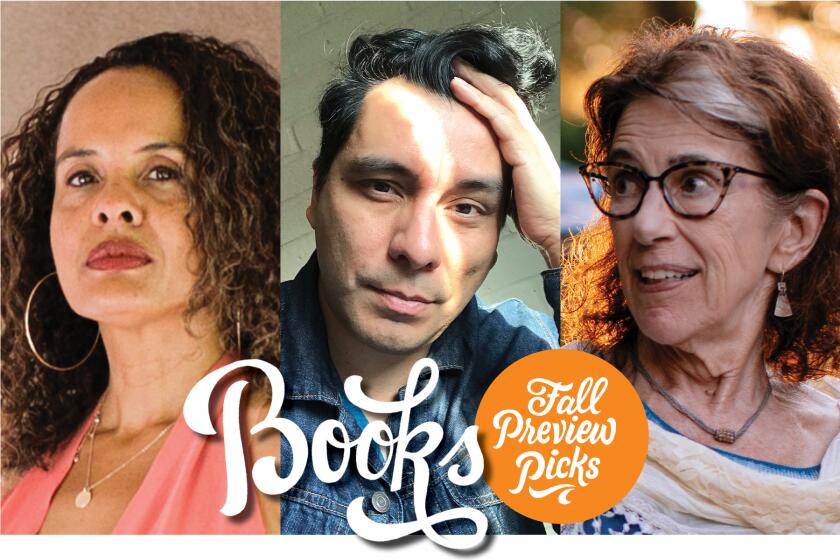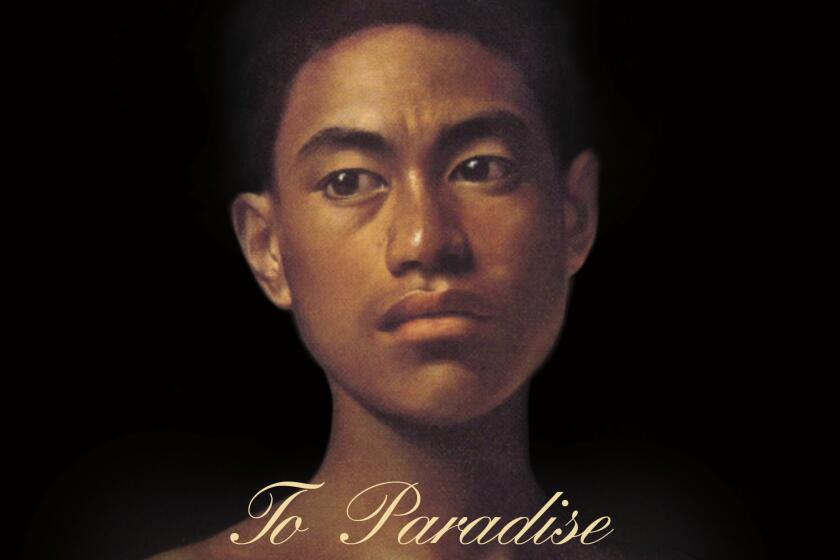Review: How to survive hurricanes, family and the American dream, in a blazing story cycle

- Share via
On the Shelf
If I Survive You
By Jonathan Escoffery
MCD: 272 pages, $27
If you buy books linked on our site, The Times may earn a commission from Bookshop.org, whose fees support independent bookstores.
The best book titles feel wholly different to the reader by the time the book is finished. And the best books teach you their own logic, offering specific and surprising definitions of previously canned words and ideas. It is very much to Jonathan Escoffery’s credit that, after finishing his debut story collection, “If I Survive You,” I realized how differently I thought of the title phrase. What does it mean to survive? What are the conditions under which this might be possible? Who is the “you” in each of our lives? Who is the “them”?
It feels almost laughable to use the term Künstlerroman, but maybe that’s just what a good number of first books are — portraits of an artist struggling to be born. Escoffery’s version consists largely of stories about Trelawny, the Miami-raised son of immigrants from Jamaica, in those early impossible years of trying to get by. Throughout the stories we track the same basic outline of his life: His dad starts a contracting business, with limited success; Hurricane Andrew hits; the family goes up to Fort Lauderdale; Dad starts to get more work; Dad moves back to Miami, to the house he’s rebuilt, but the parents decide to split and to also split the kids. Dad chooses Trelawny’s brother, Delano, instead of him.
Eventually Trelawny goes to the Midwest for college: “You wonder what would have happened if a real Black man had gained admittance. You envision your classmates running for their lives. …You wonder if another Black person will be admitted. You watch as the years go by and none are.” He finishes and goes back to Florida. His mom moves back to Kingston. He has an assortment of crap jobs and answers Craigslist ads for extra cash and, after living with Dad again briefly, is homeless for a stretch.
The latest from Ling Ma, Yiyun Li, Russell Banks and Namwali Serpell as well as exciting newcomers round out our critics’ most anticipated fall books.
Amid this aimlessness, there is a story told impressively in Jamaican dialect, and also in the second person, focusing on Dad’s early days and his decision to leave Jamaica for the states. “If you no careful, life go so carefree, till you daddy say, Time to get serious boy, and stop all the play-play. Time to get job. Time to be a man.” Further complicating our relationship to the “you,” there are two other second-person stories that follow Trelawny instead.

The earliest contender for the “you” the “I” might need most to survive is the father — Trelawny’s but also Trelawny’s father’s, also his friend Cukie’s, also everyone’s. It’s the way they get inside you, even if only as an absence; the way both their memory and their failures begin to grow and fester; the way our parents form us not just by giving but also by failing to give — especially by failing to show us how to live.
The “you” also starts to feel like everyone who isn’t Trelawny, including but not limited to the white woman who agrees to pay him money to have him hit her in the story “Odd Jobs,” or the white couple who hire him in the title story to watch them have sex, or his Cuban girlfriend’s racist family. The “you” feels like everyone who refuses to allow Trelawny to be anything but whatever they’ve projected upon him. “It occurs to you that people like you — people who burn themselves up in pursuit of survival — rarely survive anyone or anything.”
Short stories, ideally, evoke a heightened sense of attention: crystallized more fully than novels, they allow the breadth of a focused stretch of time, with its layers and textures, to reveal itself. At their best, Escoffery’s stories do this, looping the reader into the heartbreak of fatherly rejection, into the desperation of needing just another 20 bucks. But the book suffers a bit from having to let each story feel stand-alone, even as they largely tread the same short span of time. Getting the same backstory sketched out in so many stories, I did wonder whether there was a novel in its bones. But Escoffery also makes a strong argument for the story by virtue of the fun he has inside of it (a pleasure passed on to the reader), the various points of view and tenses he plays in and the ebullient sense of humor he deploys throughout.
‘To Paradise,’ Yanagihara’s follow-up to the trauma-filled blockbuster ‘A Little Life,’ works hard to addict readers but shirks the hard work of empathy.
He also does Florida impossibly well. I grew up there; few people get the way it burrows inside your bones as well as Escoffery does. Here is Trelawny, outside the house that belongs to his father, where he is the only person who pays rent, after his brother has kicked him out: “The croaking lizards scatter over the stucco wall as you pace the length of the front yard. Trashmore’s funk fumes burn in your lungs, and as you work yourself up, the stink laminates your skin, slowly suffocating you.”
And here is Cukie on a summer day in the Keys: “The morning sun is already melting everything to chowder or dead fish and saltwater. The heat mats Cukie’s hair to his scalp. If he inhales hard he can taste his sour flesh in the soup, and the more he does this the more he realizes he is not cooking but rotting.”
The author also nails more universal conditions, such as the ache of knowing you can’t come from any other people than the ones you came from — of loving them, still wanting them to love you, while also being too smart to expect them to change: “Still this house cradles your preadolescent memories: the lost baby teeth, the young skin scraped into the interior walls and molding. ... Dried though it may be, your blood is caked into the foundation of this house. Your DNA is intermixed with its bones.”
In the end, the book tells us — and I almost wished it didn’t — who the “you” is. The last line gives us an idea of how to survive, and also of how heavy and intractable that “if” can be. What it also does is promise more from a writer I can’t wait to see making books for a long, long time to come.
In Lynn Steger Strong’s ‘Want,’ a writer, teacher and mother faces up to her own privilege and the precariousness of her middle-class life.
Strong is a critic and author of the forthcoming “Flight,” among other novels.
More to Read
Sign up for our Book Club newsletter
Get the latest news, events and more from the Los Angeles Times Book Club, and help us get L.A. reading and talking.
You may occasionally receive promotional content from the Los Angeles Times.










